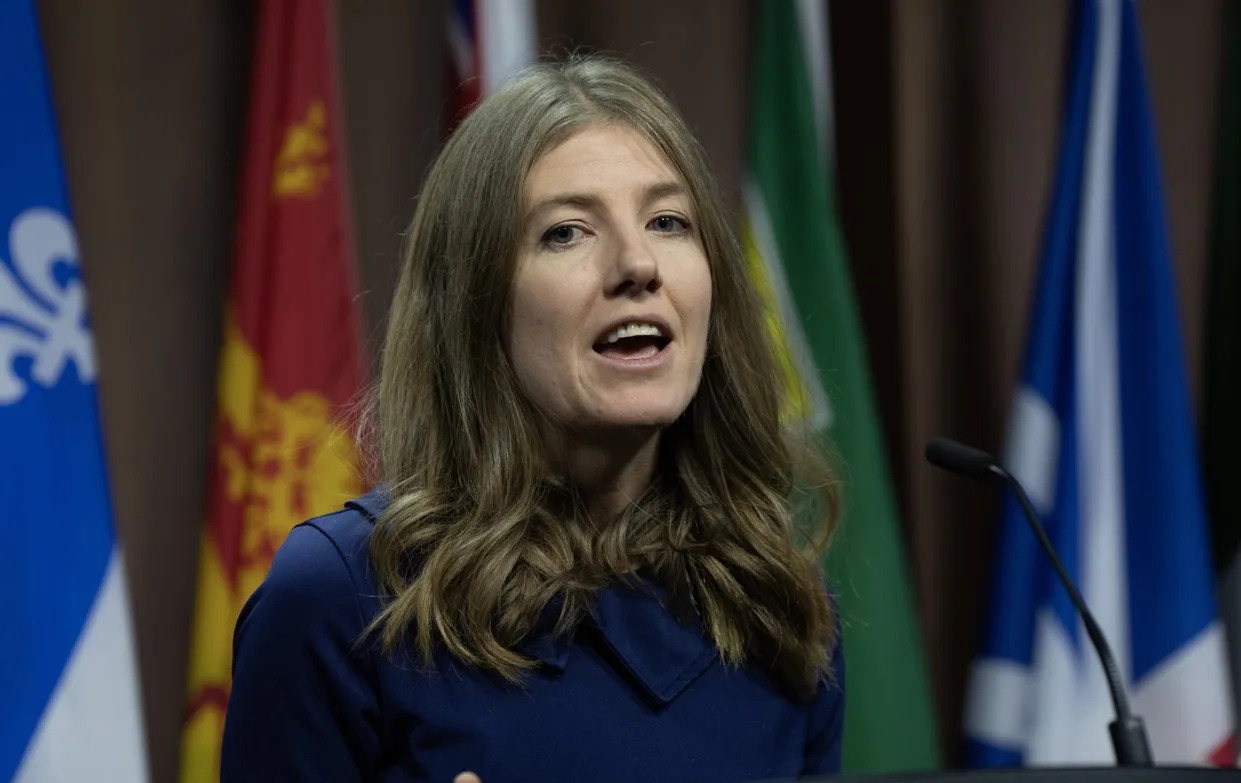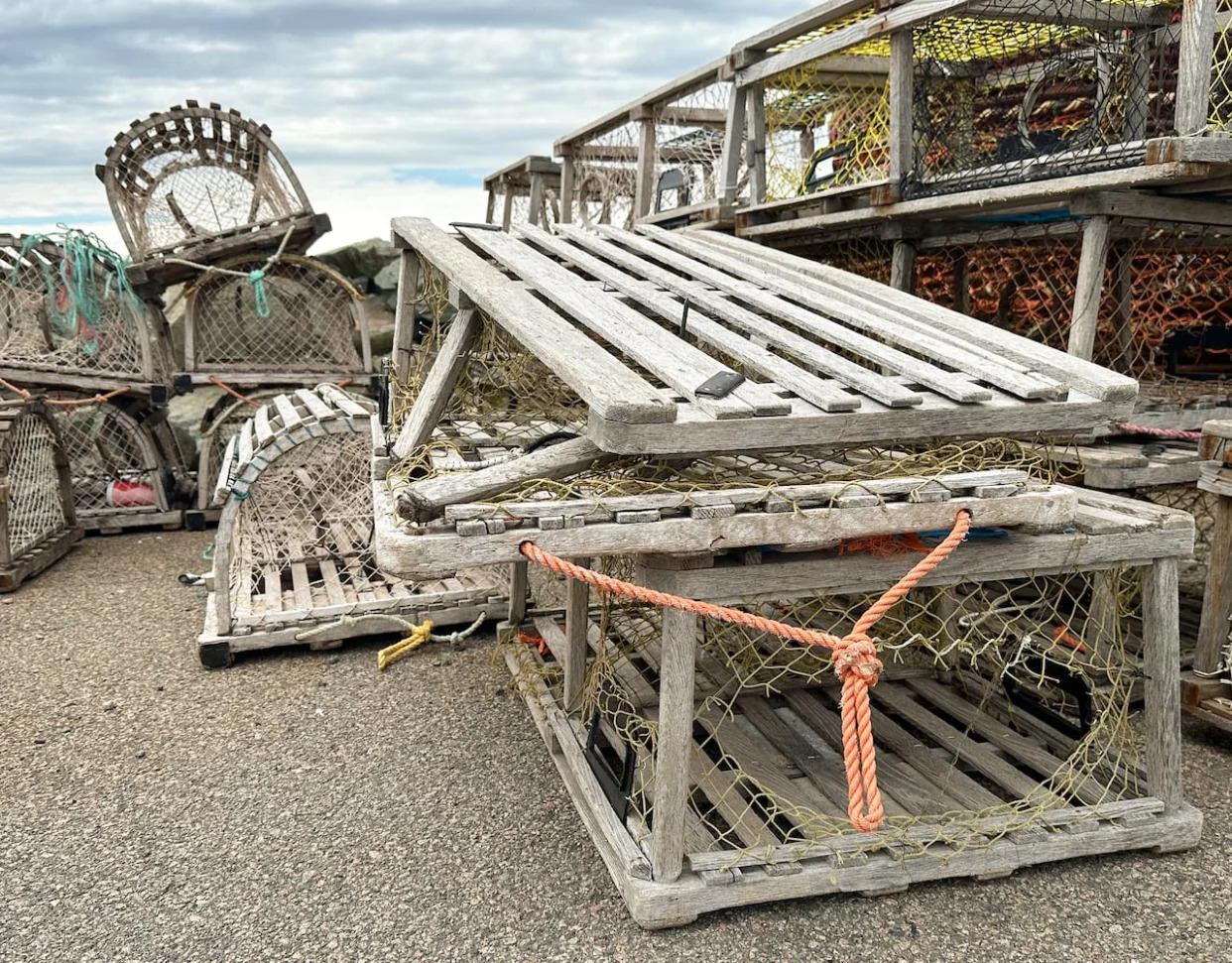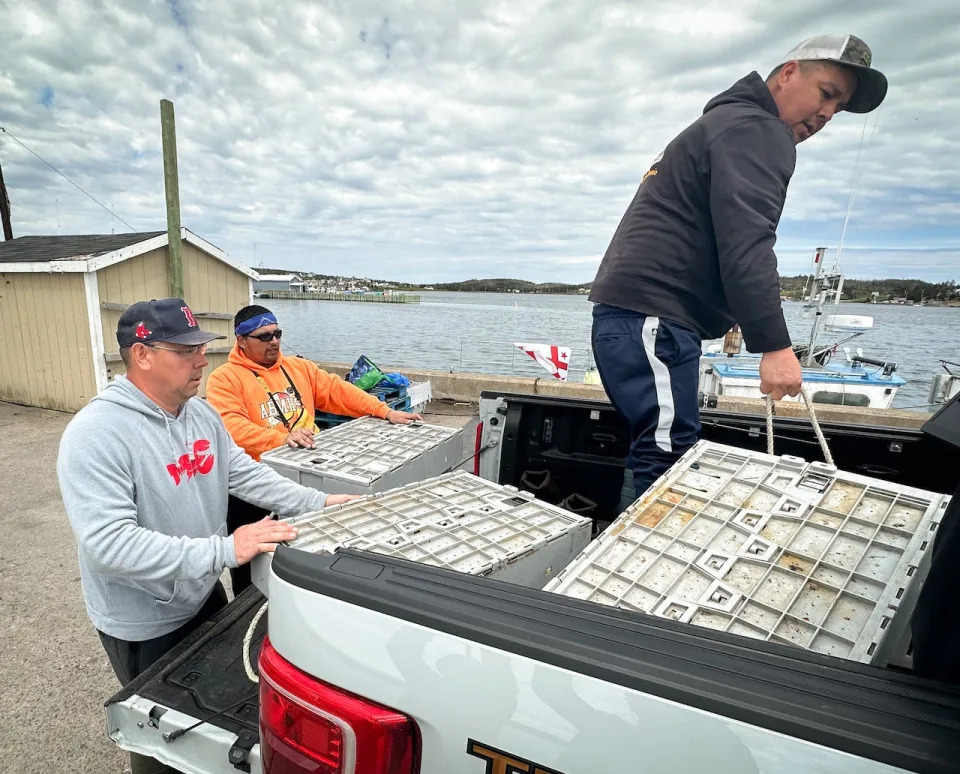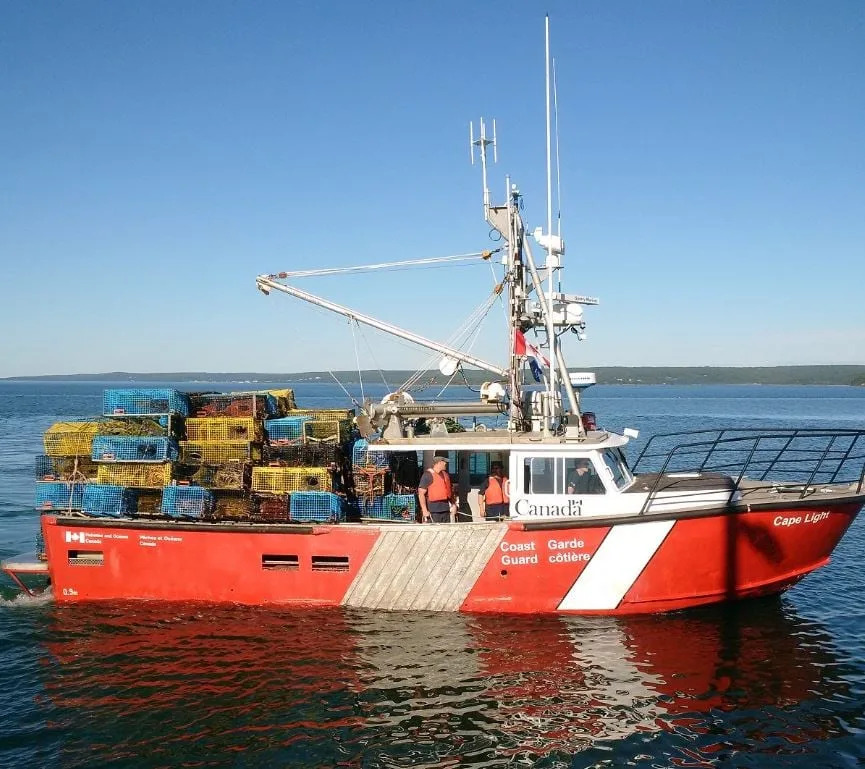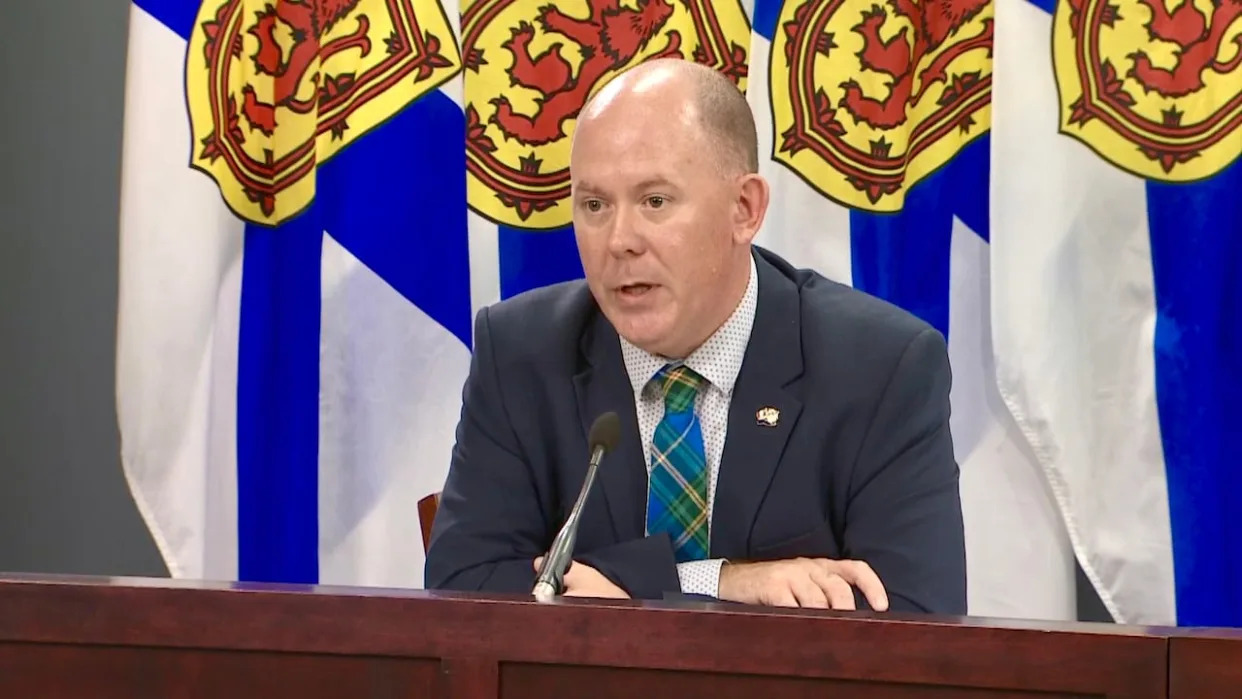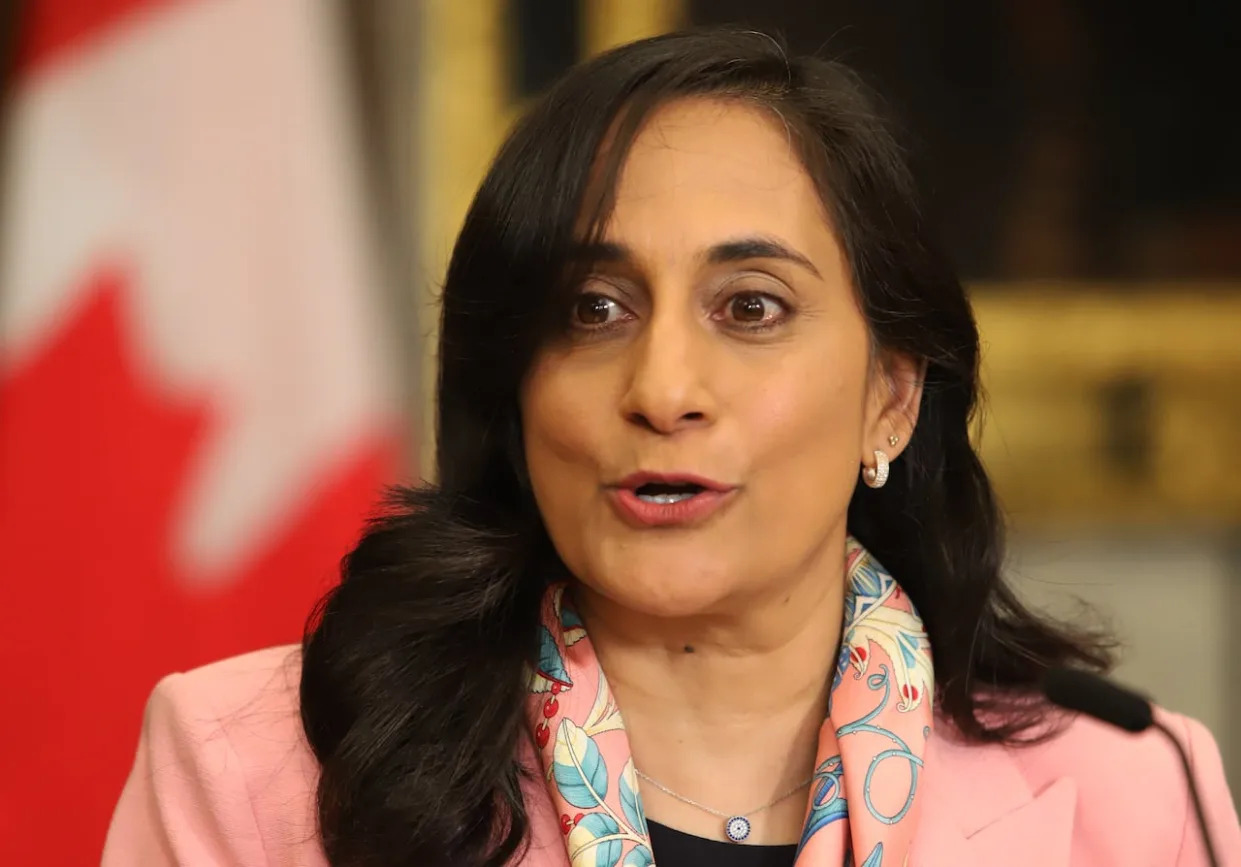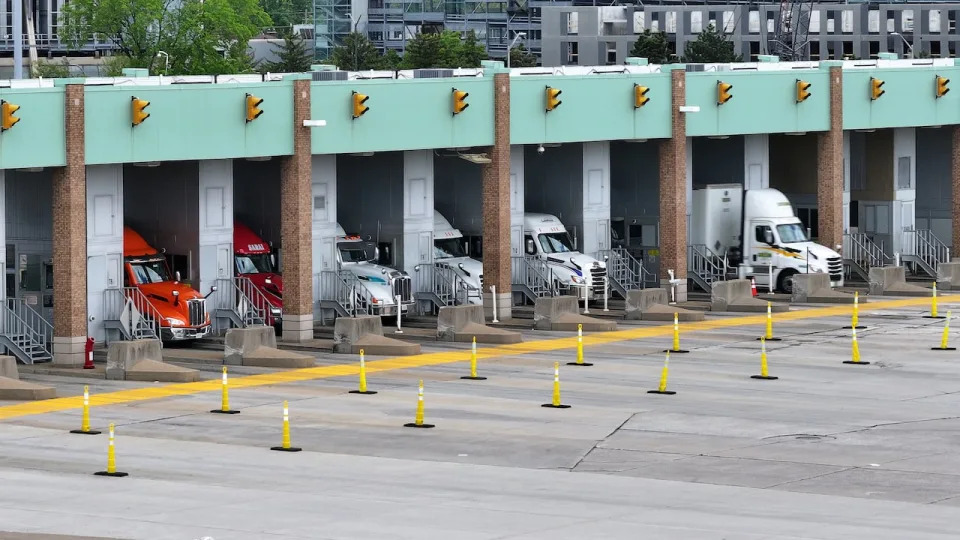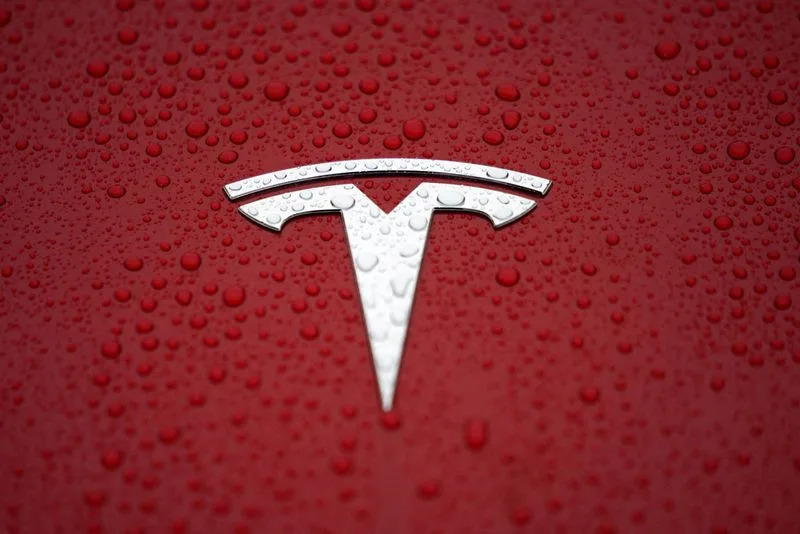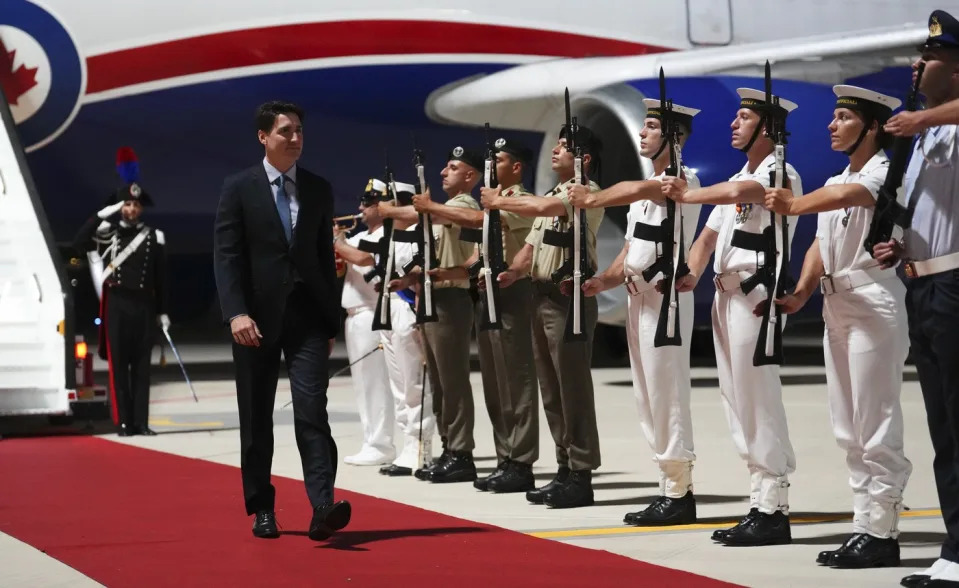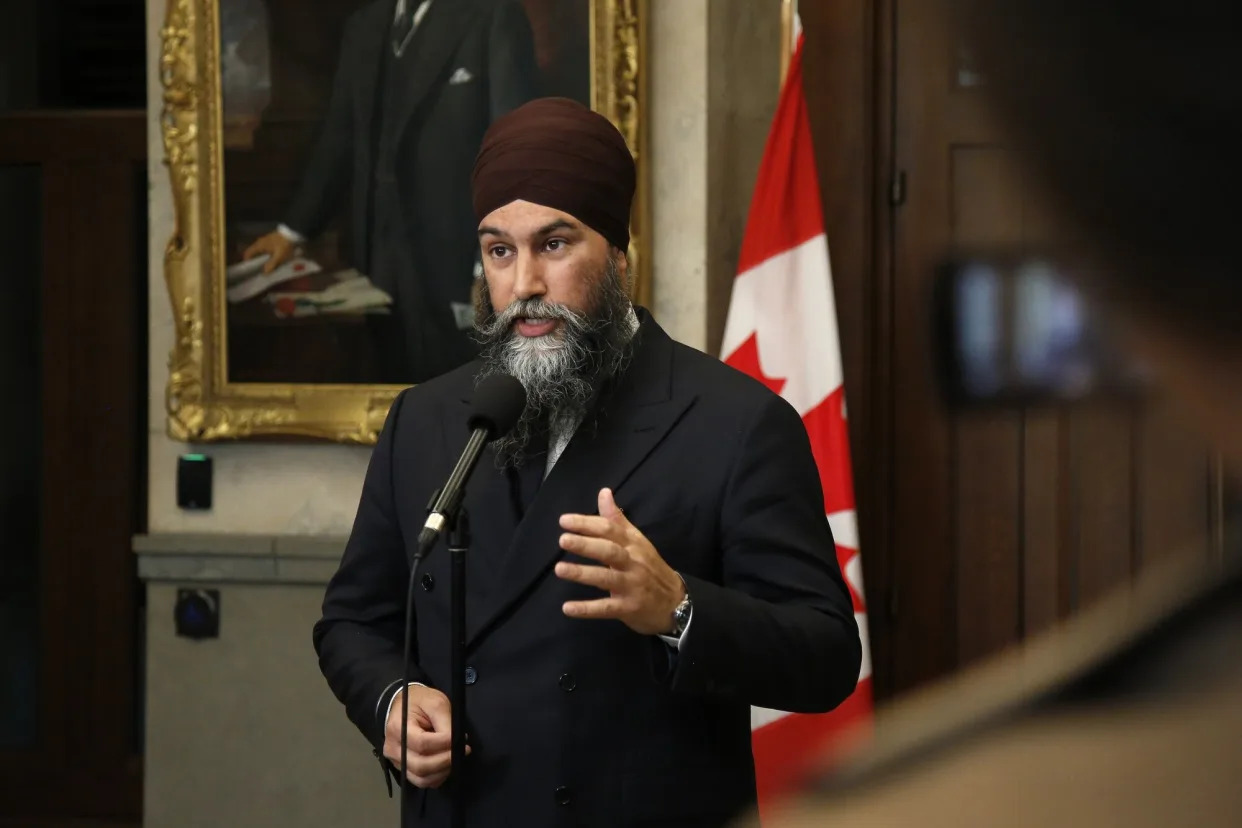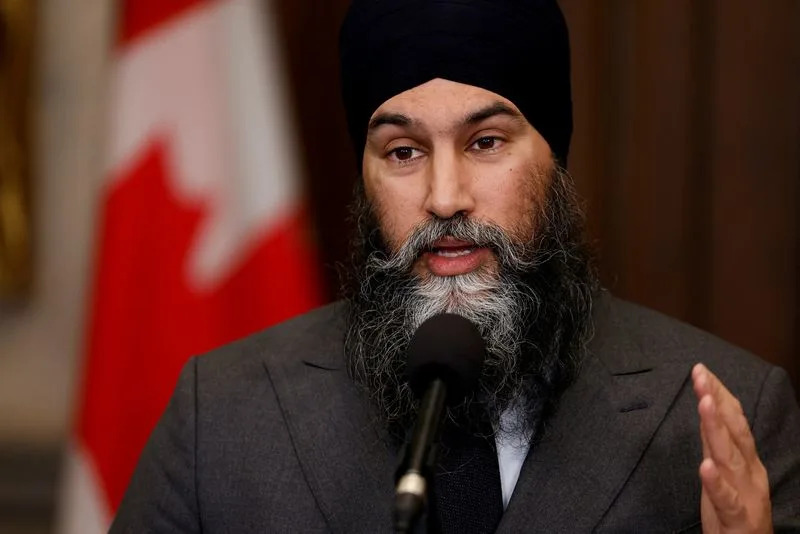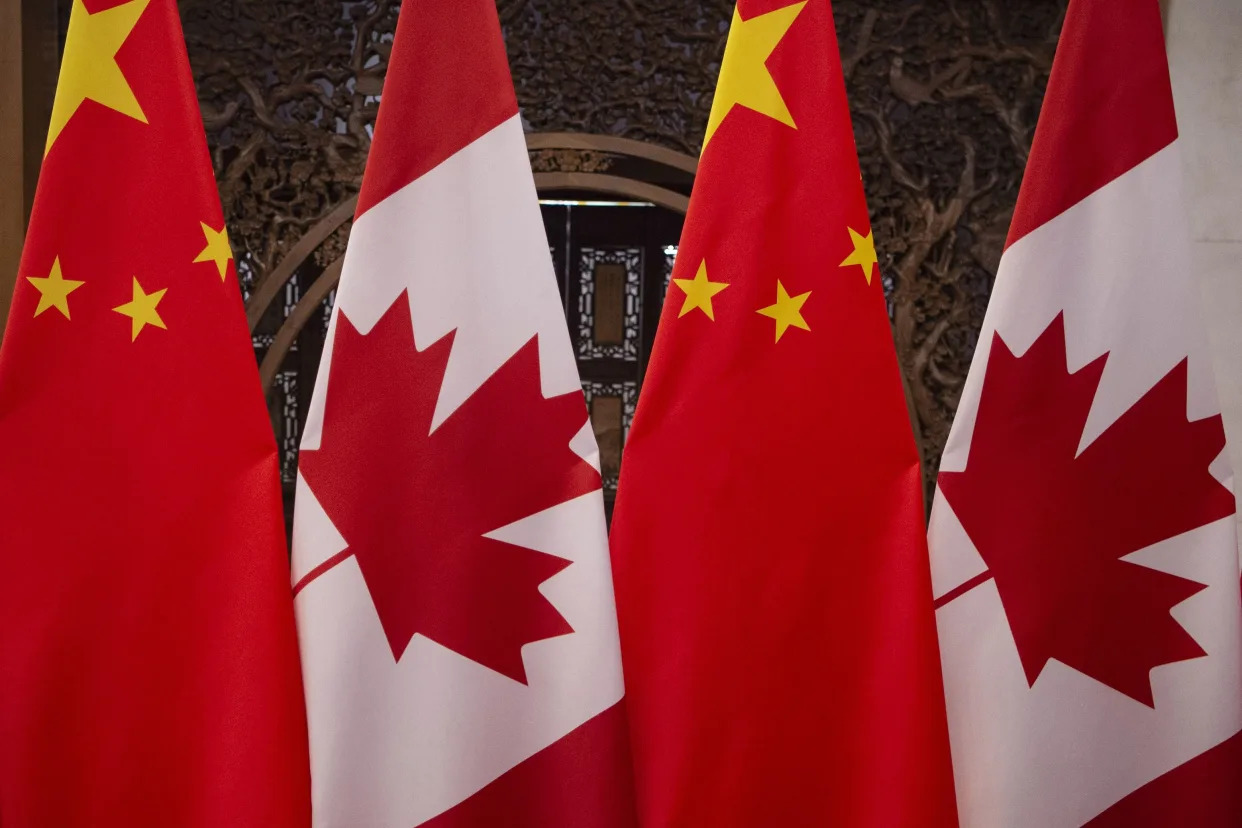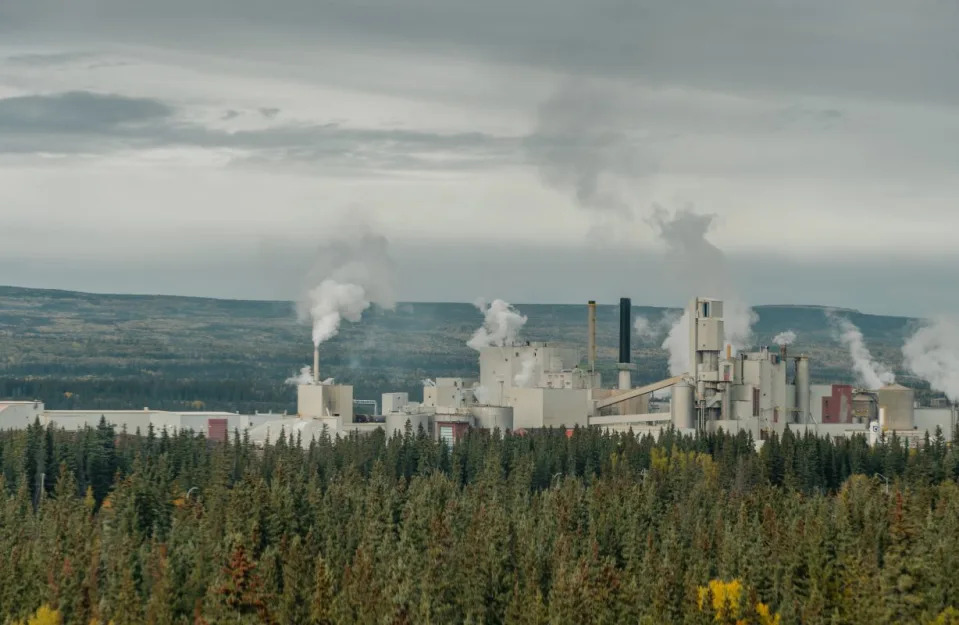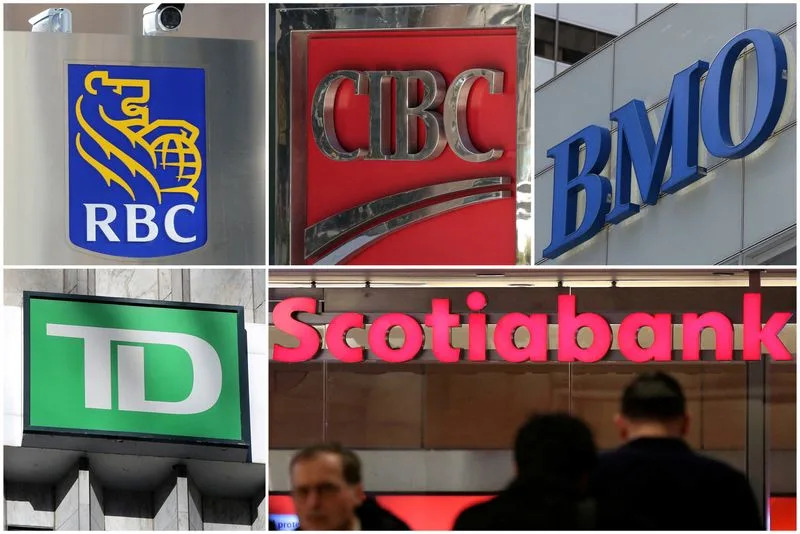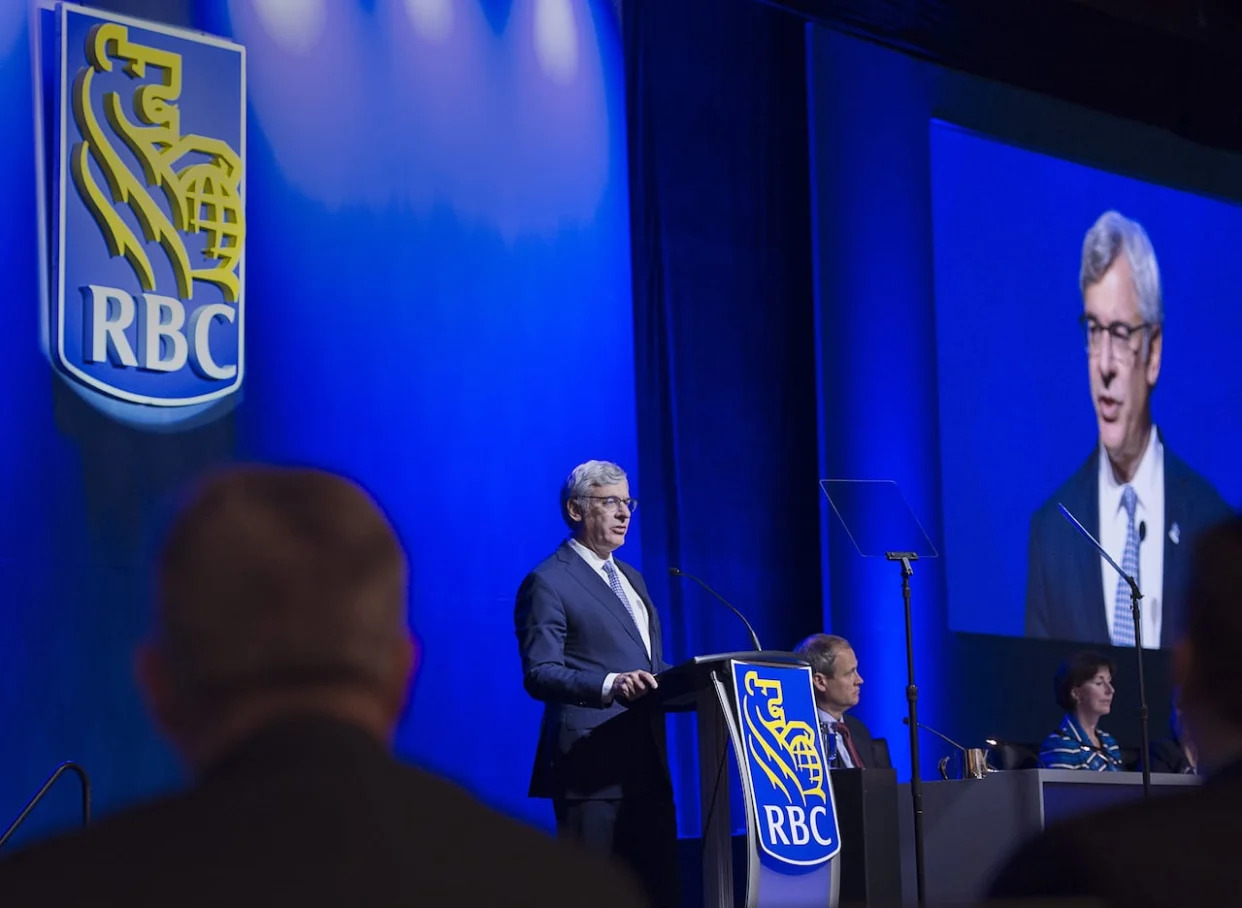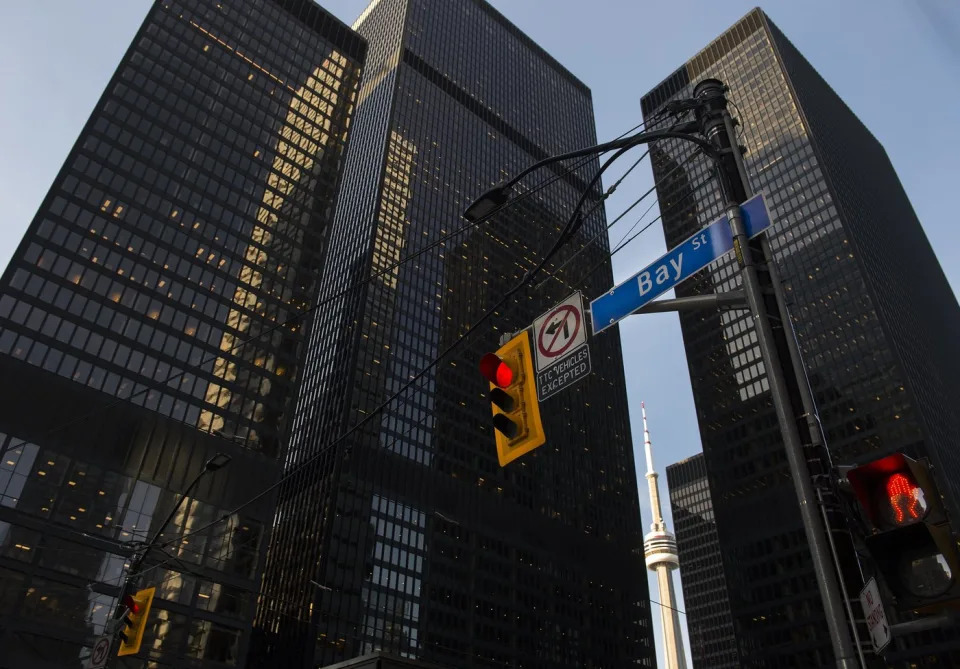CBC
Thu, June 13, 2024
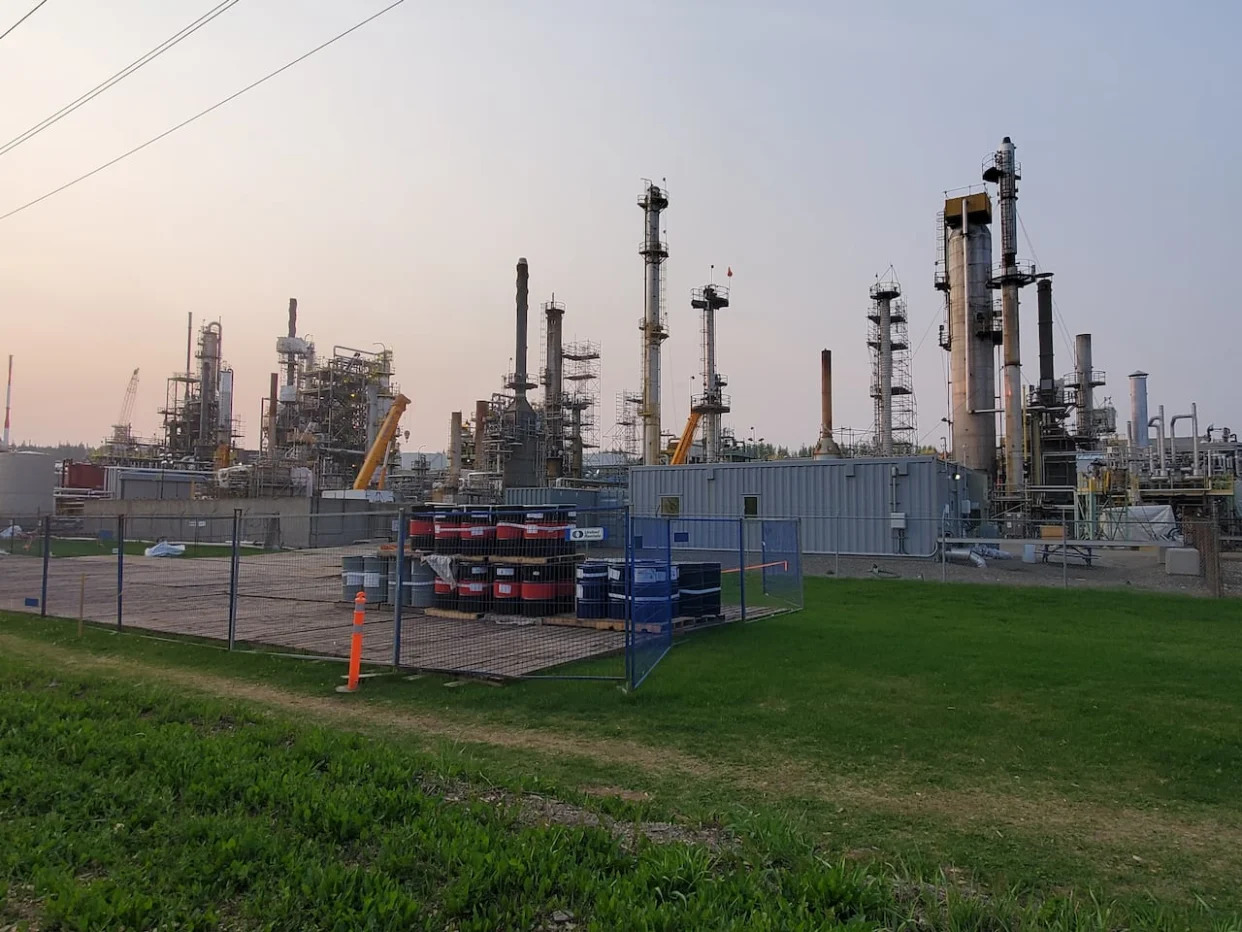
Tidewater Renewables in Prince George, B.C., is 1 of 7 renewable diesel refineries Canada said was either open or under construction in 2023. Experts are weighing in on whether the North should use renewable diesel, after one N.W.T. MLA suggested it could be a 'game-changer' for the territory. (Betsy Trumpener/CBC - image credit)
A Saskatchewan researcher who specializes in fossil fuels and energy transitions says she understands why renewable diesel is an attractive alternative in the North — but she's not sold on the idea that it's the best way to reduce overall emissions.
"I think the total carbon footprint of renewable diesel is a bit unclear," said Emily Eaton, a geography and environmental studies professor at the University of Regina. She wonders if its production has "hidden greenhouse gas emissions" that aren't accounted for.
Made from vegetable oils and fats, renewable diesel is chemically the same as conventional diesel and can be used in any type of existing diesel engine.
Yellowknife North MLA Shauna Morgan suggested last week it could be a "game-changer" for the North, and urged the N.W.T. government to work with the Yukon to find some for a pilot project. She said the cost per tonne of reduced emissions from renewable diesel is two to eight times lower than other renewable projects the territory is working on — like solar and wind.
A market snapshot of Canada's budding renewable diesel industry said as of 2023, there were seven refineries planned or under construction around the country. One of the main drivers of the development, it said, were clean-fuel regulations set in 2020 aimed at reducing emissions.
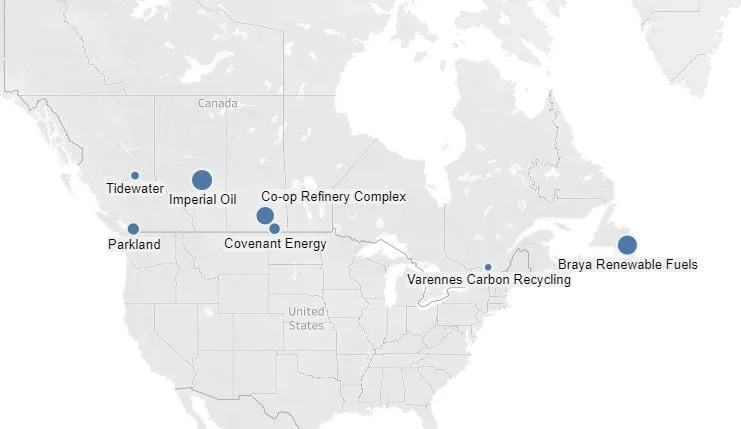
Canada Energy Regulator published a market snapshot of the the country's renewable diesel industry in 2023. This map, which comes from that snapshot, shows seven refineries that were either open or under construction at the time.
Canada Energy Regulator published a market snapshot of the country's renewable diesel industry in 2023. This map, which comes from that snapshot, shows 7 refineries that were either open or under construction at the time. (Canada Energy Regulator)
But Eaton said renewable diesel is "for the most part" refined in the U.S. and Singapore. Importing the end product, growing the crops to make it, and the refining process all generate emissions too, she said.
Instead, she considers electrification to be the "best practice" for the energy transition in Canada.
Lachlan MacLean, a practicing mechanical engineer and member of the Yellowknife-based social justice non-profit Alternatives North, disagrees. He believes renewable diesel is one of the North's best options for reducing emissions, though he agrees it's crucial to ask questions about where a product comes from and how many emissions might be associated with its entire lifecycle.
And for that, he has an answer.
"You would want to get a certificate of carbon intensity [that] comes from a trusted assessment firm that is going to be looking at these lifecycle … emissions," he said. Carbon intensity is a measure of how carbon dioxide and other greenhouse gasses are associated with an activity.
MacLean said renewable diesel products have a variety of different carbon intensities, and it would be important to pick a product that meets the territory's goals.
No big new infrastructure needed for renewable diesel
MacLean believes the N.W.T. should be focused on renewable diesel because it can be used to address a huge amount of the territory's emissions. Right now, conventional diesel is widely used in the territory as heating oil, transportation fuel or for remote power generation.
Renewable diesel can also reduce overall emissions as soon as the fuel is used — helpful, as the territory inches closer to a 2030 reduction target that remains out of line with the federal government's targets.
A lot of alternative technologies — including electrification in small communities — require the territory to build big pieces of infrastructure which would cost a lot of money and would take years, said MacLean.
Although renewable diesel is also more expensive than conventional diesel, MacLean agrees with MLA Morgan about it being a more cost-effective solution for reducing emissions. He also pointed to California as an "incredibly successful" example of how policy can be developed so those costs aren't immediately shouldered by consumers.
California has a clean-fuel regulation that gives low-carbon fuel producers credits which are, in turn, purchased by fossil fuel producers, said MacLean. That means companies making low-carbon fuel can offer their product to consumers for the same price as conventional oil and still make money.
MacLean cautioned, however, that renewable diesel isn't a silver bullet for everyone.
"It's unfortunate that people don't take a more regional lens to these things, because it makes a difference. The devil is always in the details," he said.
Natural gas opposition 'ideological,' new Ontario energy minister says
The Canadian Press
Thu, June 13, 2024
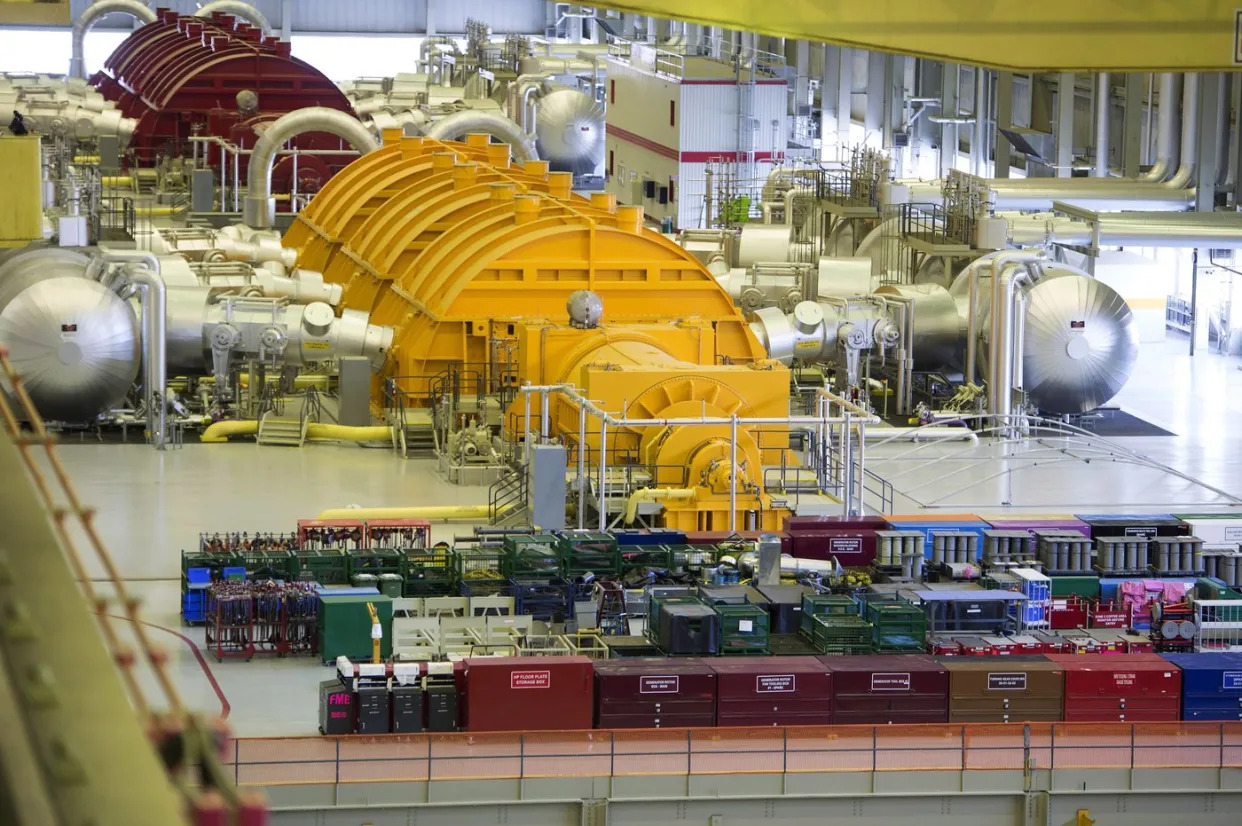
CLARINGTON, Ont. — Ontario's new energy minister is unapologetic about the province's use of natural gas to partly fuel growing energy needs, calling opposition to it "ideological."
Stephen Lecce took over the portfolio last week in a cabinet shuffle, when he was moved from the education file that he oversaw for five years.
Premier Doug Ford also gave the ministry a new name, dubbing it the Ministry of Energy and Electrification, and Lecce said it is about building the energy infrastructure needed to meet the demands of the economy, including large-scale manufacturing facilities such as the electric vehicle battery plants being built in the province by Volkswagen, Stellantis and Honda.
"The reality is we need more energy and the mission of our government is to build upon Ontario's already ambitious plan to scale up our energy using all forms, be it nuclear and natural gas and renewables," Lecce said Thursday at a news conference.
"We need to take an all-of-the-above approach to build for the future."
Ontario's electricity system operator recently procured new power supply from 10 battery storage facilities, which can charge during off-peak hours and inject energy back into the grid when it's needed, as well as three natural gas and biogas facilities.
The new 20-year contracts are for electricity supply set to come online between 2026 and 2028 and the Independent Electricity System Operator has said the province will now have enough electricity for the rest of this decade.
But while the government has said recent moves to add more natural gas generation to the electricity system were necessary in order to ensure enough supply and flexibility – particularly as nuclear plants undergo refurbishments – it has caused greenhouse gas emissions from the sector grow.
In 2021, the electricity system was 94 per cent emissions free, but that is now down to 87 per cent.
Lecce said Thursday that Ontario's grid is still one of the cleanest on the continent, and, he emphasized, the government's decisions will ensure it remains reliable and affordable.
"What we will not do, and I cannot underscore this enough, is we will not pursue a path, an ideological path, that will deny some forms of energy when we need all of them to help fuel our economy," he said.
Green Party Leader Mike Schreiner said Lecce's comments are "totally disconnected from the reality Ontario is facing."
"Ramping up expensive, dirty gas plants makes no sense when people are facing an affordability crisis and a climate emergency," he wrote in a statement.
The IESO said in a 2022 report that Ontario could fully eliminate natural gas in the electricity system by 2050, starting with a moratorium in 2027, but it would require between $375 and $425 billion in capital costs over 23 years, including building new, large-scale nuclear plants, resulting in annual operating costs of about $60 billion by 2050 — three times the current costs.
If consumer costs become too high, it could jeopardize the plan to decarbonize, the IESO said.
The former Liberal government faced widespread anger over high hydro bills, driven up in part by long-term contracts at above-market rates with clean power producers secured in order to spur a green energy transition.
Ontario is planning to add more wind and solar power to the mix, as well as forging ahead with adding nuclear, including exploring a new, large-scale plant at Bruce Power in Tiverton, Ont., seeking permission to refurbish units at the Pickering nuclear plant, and building four small modular reactors at the Darlington nuclear facility.
Lecce announced Thursday that the first phase of site preparation for the first small modular reactor was complete.
The reactors will produce 1,200 megawatts of electricity, enough to power more than one million homes.
Lecce also announced that a subsidiary of Ontario Power Generation has secured a $360-million deal to help refurbish a nuclear plant in Romania.
As part of the Romanian deal, Ontario nuclear workers will provide their expertise on the refurbishment after the federal government came to an agreement with the European country to provide work on its lone nuclear plant.
This report by The Canadian Press was first published June 13, 2024.
Allison Jones, The Canadian Pres
